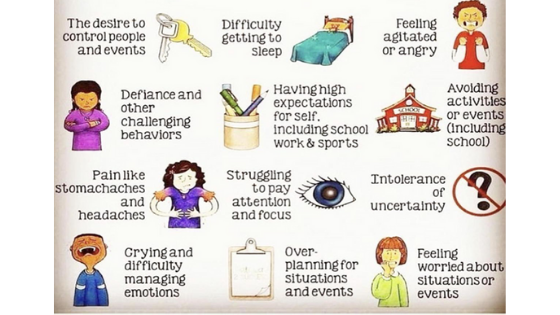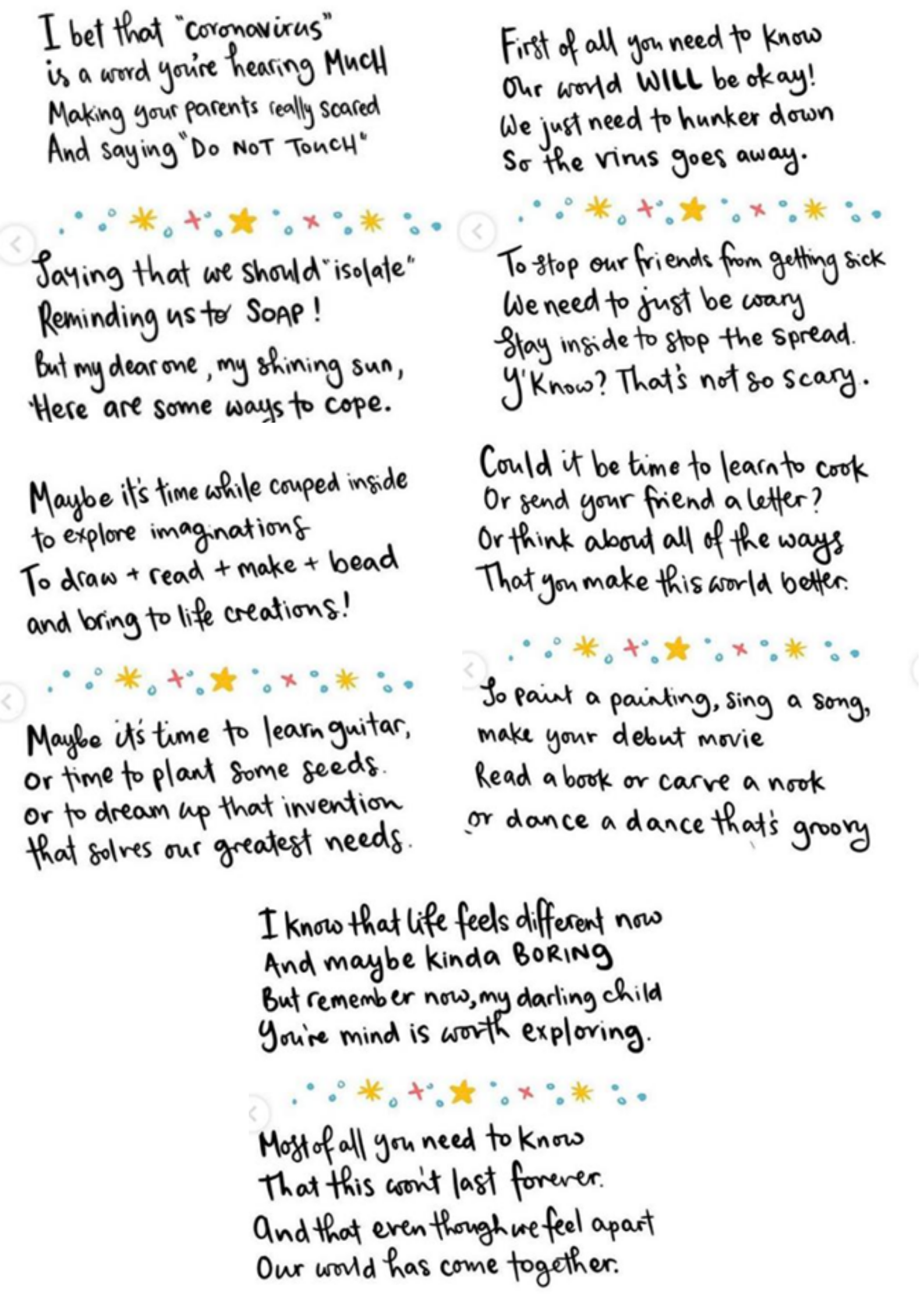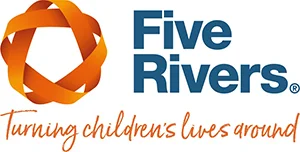Helping to support children and young people during the Coronavirus outbreak
Friday 20 March 2020
Last updated: Monday 21 June 2021
The Coronavirus, also known as COVID-19, has brought uncertain times for us all. Somewhat as contagious as the virus itself is the panic and anxiety surrounding it. Children are very perceptive of their surroundings, and just like adults, are most likely sensing the anxiety in the air. As well as looking after your own fear response, it is important we can recognise and understand the responses in children and try to alleviate their stress.
How anxiety may present itself:
We may all show anxiety and fear in different ways. If you see a change in a child’s behaviour, it could be a response to the sense of fear in the atmosphere. The below image shows various changes children may show as their fear response becomes activated:

These are behaviours that we may notice in the children we care for regardless of the current circumstances. However, if you see any of these escalating, it is worth considering whether this may be a response to the growing fear in society. It is important we can help children understand what the Coronavirus is and how people are responding to it to alleviate their stress.
How to help children cope with stress:
- Tackle your own anxiety
Talking to children when you yourself are anxious about the virus will most likely spread the anxiety, rather than provide any reassurance. If you are feeling anxious, try not to discuss this with other adults in front of children. Be mindful of children being present and what they may be picking up on.
Take some time to feel calm before talking about it. To find some tips of how to keep yourself calm, please see https://five-rivers.org/news/keeping-yourself-safe-during-the-coronavirus-outbreak/
- Talk to children about the virus
The best thing you can do to help a child feeling anxious about the Coronavirus is to talk to them about it, in a calm and rational way. Re-assure them that it is normal to feel worried and concerned and ask them what they have heard about it and how that has made them feel. Be prepared to answer their questions but not prompt questions or further concerns yourself. Too much information may be overwhelming.
There are things that we can have a sense of control over and that lower our chances of getting the virus. Children can feel empowered by knowing what to do to keep themselves safe, such as washing their hands. The NHS have an advice page of what we can do:
https://www.nhs.uk/conditions/coronavirus-covid-19/
You could explain this information to children so that they know there is a clear action plan in place, which may create a feeling of safety and containment around the illness. We are the filter for information that the children in our care receive and it is important to distinguish advice that is helpful and news articles that may be harmful.
Alternatively, you could use child-friendly online videos which have been designed to explain the virus to children, and the information they need to know to stay safe. You could watch these with them and be on-hand to explain any questions they have. Dr Ranj has made a really helpful and calming video on YouTube, aimed at children, to answer their questions and reduce anxiety, this can be found using the below link:
https://www.youtube.com/watch?v=oMHacLHchI0
You can also find other resources online to help explain the virus to children, for example advice on how to talk to children about the Coronavirus on websites, such as the one below:
https://www.tes.com/news/coronavirus-how-talk-about-it-children
A helpful comic strip about the virus, designed specifically for children:
There are also resources on social media such as the following poem for children:

It is also important to re-assure children that if they were to become ill, adults would be there to look after them and keep them safe. They would not be left alone, and you would all get through it together. For children, symptoms tend to be milder and they will most likely be back to health in a week or so.
- Keep away from the news
Monitor children’s exposure to news articles about the virus, as many headlines are instigating fear and anxiety. Explain to them that if they know how to keep themselves safe then there is no need to become overwhelmed through searching for the latest information.
- Plan some distracting activities
It will be useful for children to have a break and take their mind off current events. Going outside in nature can be particularly helpful for reducing stress and can also benefit the immune system. It is important to continue with safe activities and go outdoors, exercise and have fun!
The following websites have some different ideas on how to maintain and approach education whilst children are at home and suggestions of different fun activities for those who are self-isolating:
https://www.bbc.co.uk/news/uk-51936286
https://www.northshoremums.com.au/fun-home-activities-with-kids
- Stick to your normal routine
As much as possible, try to stick to your usual routine to create a sense of normality. Many children can struggle with disruption to their usual activities, increasing fear. Keep to your daily schedule for as long as possible to avoid furthering anxiety. If you are asked to self-isolate with children, draw up a daily routine and show it to the child (e.g. mealtimes, bedtimes etc.) so that they can see there is still structure, routine and control in their lives.
Although it is important to be sensible and do what we can to stop the spread of the virus, we also need to look after the mental health and well-being of ourselves and the people around us. Children will look to adults for safety and re-assurance. We need to take precautions, but we still need to live and enjoy our lives and encourage the children we care for to do the same.
